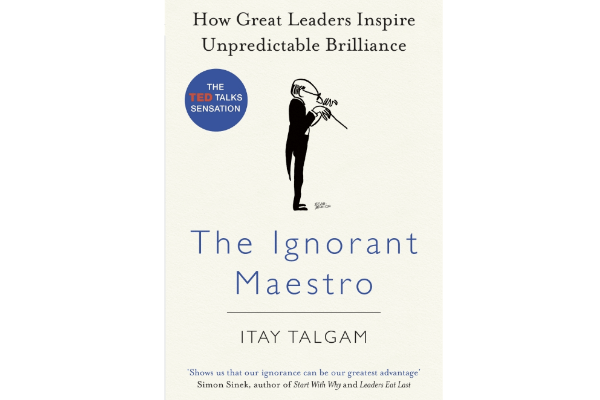My wife comes from a Sikh family from Ambala. During one of our visits, we went to a Gurudwara at the outskirts, “Panjokhra Sahib“. After prayers, we decided to go for the community meal (langar). Like in all Gurudwaras, people were sitting comfortably on the floor. That’s when a wealthy family arrived. They seemed to be dressed to impress, and sat down with the rest of the group. A group of ragpickers were then seated next to this very family. I was curious as to how the people serving langar would react. And yet, there was no visible change in their demeanour. They served the group of rag-pickers with the same smile and love as they had been serving others with. This was a beautiful example of ‘inclusion’ that I personally witnessed.
DEI (Diversity, Equity & Inclusion) has become something of a buzzword in today’s organisational landscape – and rightly so. But, to get across what exactly this concept stands for, in a way that everyone can understand and effectively act on it, is no easy task. Your team members may understand the definitions, but recalling the exact definition will not be possible for most.
So how do we change this reality?
A unique solution to this unusual problem is – storytelling. Stories are magical in their power over us as humans. They have a way of making difficult or even vague terms like innovation or inclusion easy-to-understand for all. Also, stories stay with the listener for a really long time. Chances are, the Gurudwara story would now be lodged in your mind and you may even recall it years later, without much effort. Evolutionary biologists have confirmed that our brains are wired to think in terms of “stories.”
In fact, our brain converts real life experiences into stories and stores them that way, always accessible for recall.
Business Stories
Table of Contents
Humans have been telling stories since the dawn of civilisation. And if you reflect on your own childhood, interesting animal stories (In India, Panchatantra, Jataka Tales, and likes of it) were all around us. They not only effectively taught us values, but also left a life – long impression.
It is only in the last few decades that stories have started leaving their mark on the leaders across industries. Despite the common refrain – “come to the point, don’t tell stories.” corporate storytelling is here to stay. Increasing number of senior leaders are starting to rely on business stories to explain values, strategies, and overall plans. If you are working hard to be a better leader, time is ripe for you to learn Business Storytelling. You can start by using small anecdotal stories to establish credibility, to influence stakeholders, or even just to clarify your expectations with your team.
Anecdotal Stories

One good anecdote is worth a volume of bibliography
– William Channing.
A farmer set out one morning to feed his cow. On the way to the barn, he noticed that he had forgotten to put his axe away the night before. He picked up the axe and headed for the tool shed, but on the way, he noticed that web worms had gotten into the peach tree. He dropped the axe and went to get paper to burn out the worms. As he picked the paper, he remembered a sale in town and went to his truck. When he opened the garage, he noticed that one of the hinges was loose, so he headed back to the house to get his hammer. On the way to the house, he heard the cow moo so headed to the barn to feed the cow.
Anecdotal stories, like the one above, are life experiences with a lesson embedded in them. In the above anecdote, the message that ‘if we do not plan well, we may end up in an unproductive chaos’, is nicely embedded. For a team member who is often caught in such a whirlwind, this story can easily help him identify his situation. Furthermore, they would also be far more willing to work on improving themselves, than they would if criticised or reprimanded.
How do we convert life experiences to anecdotal stories?
Shawn Callahan in his interesting book, “Putting Stories to work” shows us the way. He urges us to short list some interesting life experiences either – be it our own, or or those of the people around us. To begin, pick up one or two – ones with a strong message embedded in them. Now just follow few easy steps:
- Start with either time, location, or a person.
- In simple conversational language mention how one event led to the other.
- You may even add few dialogues for authenticity.
- Steer the story towards an end with an interesting turn – an apt ending.
- Relate it to the business point that you are trying to make.

And, keeping in sync with the theme of storytelling, let me share an anecdotal story from one of my life experiences
It was the summer of 2015; I was rushing for a meeting called by a tough client. As I drove my car up the ramp from the basement parking, my heart was beating fast. As I reached the road at the ground level, the sharp turn of the car caused my mobile to slide. By a reflex action, I bent down to catch it, and bang! My car dashed into a brand new red Etios parked in the visitors parking. My heart sank and I looked around, not a soul to be seen. A voice inside me said, “you are getting late, no one has seen you, why don’t you just carry on?” But even as I considered this, I knew I could not. I got out of the car wrote a small note with my apology and my phone number and inserted it in the windshield of the red Etios. Later I did have a difficult conversation with the owner and had to shell out a decent sum, but whenever I reflect at my action that day, it makes me feel good that I did not listen to my own wicked self!
Will anecdotal stories effectively bring corporate concepts to life?

The question that baffles leaders across the board has a simple answer. It lies in realising just how well stories work in breaking language and technical barriers, when it comes to getting the right message across. Consider a situation where you, as a new leader, have to win over your team. One way for you to do this would be to make an impressive speech or talk about your values and strengths. Or, you could simply share an anecdotal story similar to the one shared above.
Which one do you think would be more impactful?









